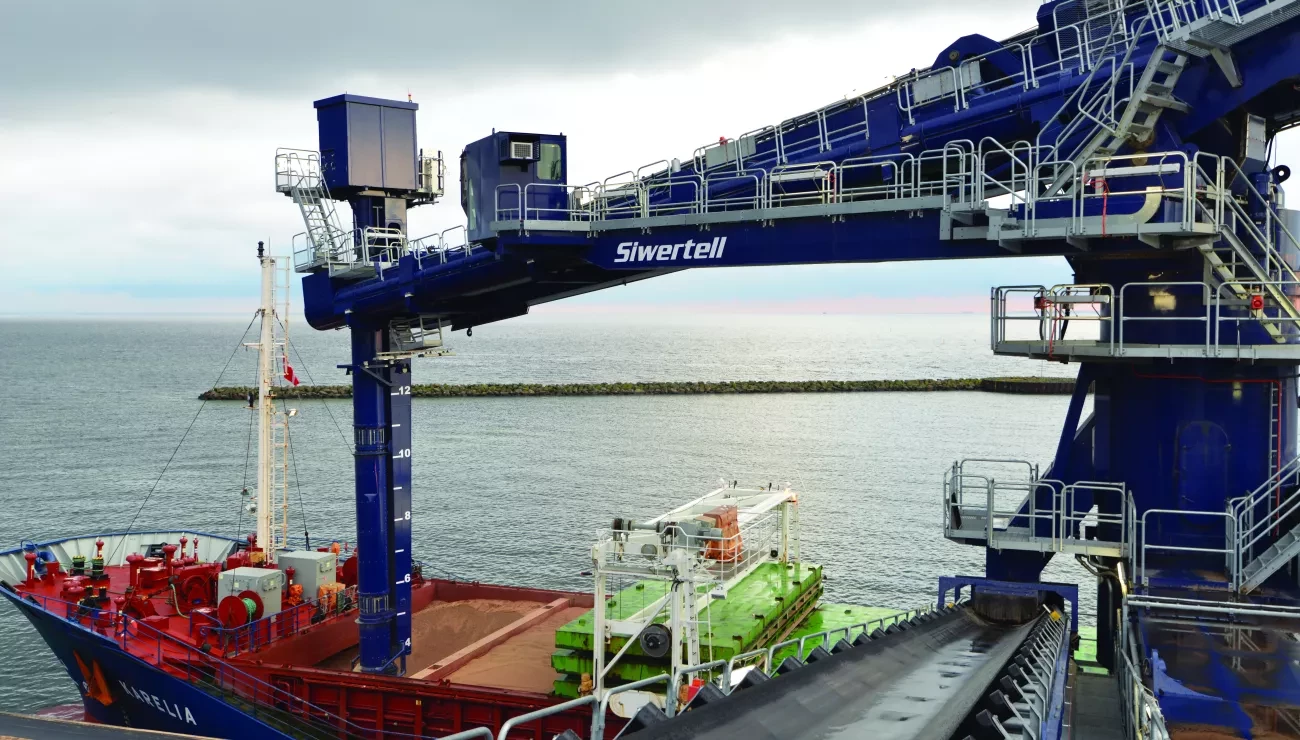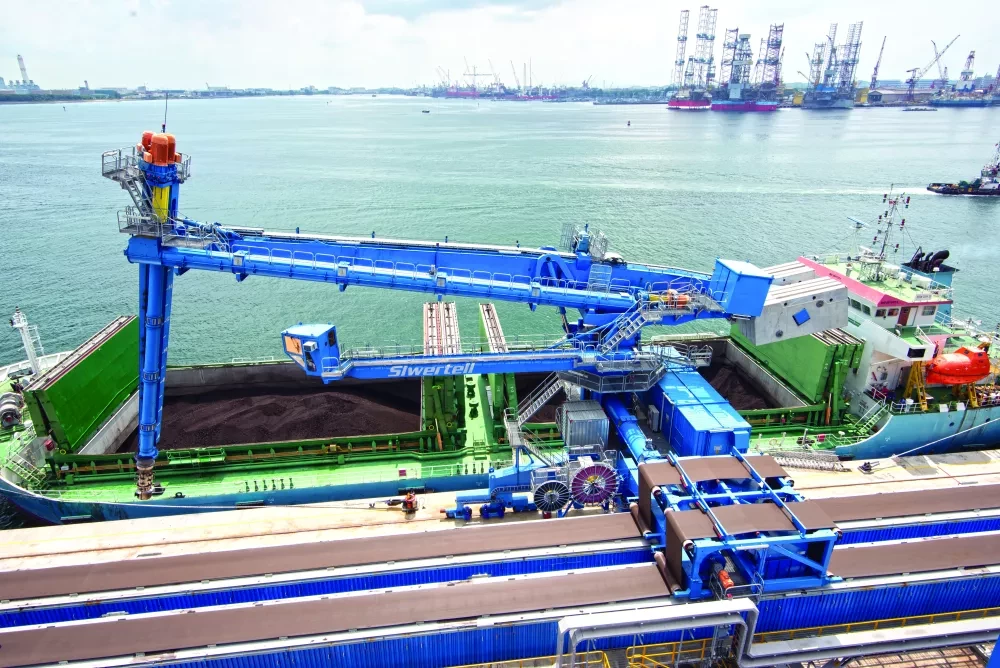
Switch on with biomass: no time like the present
12 Aug 2024This is the decade of action. Global commitment to alter the course of climate change has never been more urgent. The landscape of energy insecurity against a backdrop of surging demand, is complex, and as commitments to targeted emissions reductions loom ever closer, how are governments meeting them and enabling power generators to plug the fossil fuel gap?
Approaches are multiple, and just one strategy is biomass; sustainable, organic material, specified for energy generation. It is classed as renewable, but sits in a framework of environmental pushes and pulls.
Almost doubled in demand
A decade ago, global appetite for wood pellets stood at around 25.5 million metric tons. Now, according to Hawkins Wright, this grew to around 46 million metric tons in 2023, with Europe still demanding the lion’s share, despite a consecutive two-year contraction, and Asia, and North America showing greater levels of uptake.
It is also big business. Polaris Market Research, estimates that the global wood pellet market was valued at USD 9.58 billion in 2023 and has a predicted compound growth rate of 4.70 percent, with expectations that it will reach USD 14.5 billion by 2032.
The power segment leads wood pellet biomass industry consumption. Polaris Market Research notes that the emergence of renewable energy sectors across all global economies, are among the main factors influencing the market growth, along with the rise in consumption of wood pellets in co-firing applications, where both coal and wood biomass are burned. The easy availability and low production cost of agricultural residue and wood waste, predominant sources of wood pellets, are also likely to fuel market growth.
It is not difficult to see why power generators consume the largest quantity of wood pellets; with significantly higher volumes of pellets needed to match the energy output from coal. Furthermore, using pre-existing power-generation infrastructures offers substantial cost-saving advantages. Although conversion technology is necessary, a lot of the basics are already in place, and makes good use of it until either a significant other renewable energy resource is found, or there is a breakthrough with the supply gaps of wind and solar.
Value-adding waste
Bruks Siwertell’s aim is to switch to renewable energy sources by 2030, with some units already upgrading to biomass boilers. Beyond this, the company is part of global power transitions as well, with its ship unloading, ship loading, conveying, and wood-processing technology found at every single juncture within the biomass logistics chain.
Wood biomass pellets are an excellent, value-adding upgrade to wood fractions or agricultural waste. Once in pelletized form, the dense, low-moisture content pellets deliver very consistent, high-efficiency combustion profiles and enable the pellets to be stored and transported much more easily than in their raw states.
Wood and wood waste is Bruks Siwertell’s largest sector, and this extends to machinery for its processing, and once it is in pelletized form, the company’s dry bulk handling systems are able to overcome some of the significant challenges of its transfer. This includes volume requirements, degradation sensitivity and self-ignition.
The largest global wood pellet exports come from North America; a sector that is estimated to continue growing, cites the Polaris report. Both Bruks and Siwertell equipment are firmly footed in this region.
Meeting export ambitions
For example, two years ago, a new deep-water marine terminal in a key Mississippi, USA, port was brought online as a shipment hub for wood pellets manufactured in the Gulf region. It was designed to receive dry bulk materials by rail, barge, and truck from a pellet producer’s regional manufacturing plants and store the pellets for export at the terminal in large-capacity domes.
The terminal needed high-capacity ship loading equipment that could meet the operator’s long-term export ambitions and strict environmental requirements for dust emissions, and a conveying system to transfer pellets from the domes to the ship loader.
In 2022, Bruks Siwertell commissioned a B1600 type-five Siwertell ship loader for the port, along with the terminal’s new shore conveying system. The ship loader is ideal for sensitive materials that are likely to degrade, such as fragile wood pellets, and it was also specially designed to keep dust generation to a minimum. Dust mitigation is achieved with a Cleveland Cascade chute and dust collectors at all transfer points.
The ship loader accommodates Panamax-sized vessels up to around 70,000 dwt, bound for markets in Europe and Asia, and loads wood pellets at a rate of over 1,000t/h.

Transatlantic biomass trade
Meeting these shipments, on the other side of the Atlantic, are several Siwertell ship unloaders. Notable examples are in the UK, Europe’s largest wood pellet importer, taking around a 33 percent share of the total European import market, according to Hawkins Wright, with the Netherlands and Denmark in second and third places at 15 percent and 14 percent, respectively.
Drax Power Station in the UK, once Western Europe’s largest coal-fired power station, has gradually transformed into the UK’s single-largest generator of renewable electricity, and in 2023, it stopped burning coal entirely.
Wood pellet supply for Drax’s boilers are predominantly US imports, which are unloaded at a number of UK locations including at Associated British Ports’ Immingham Renewable Fuels Terminal (IRFT). Since 2014, wood pellet cargoes have been discharged by two rail-mounted ST 790-D Siwertell ship unloaders; prior to this the unloaders handled coal.
In 2016, the Ligna Biomass terminal in Liverpool, UK, came online. Operated by Peel Ports, the terminal can store up to 110,000 metric tons of biomass. Like IRFT, Ligna is equipped with two ST 790-D high-capacity unloaders, which supply Drax power station with up to ten train loads of pellets per day and account for up to 40 percent of the total biomass consumed by Drax each year.
Also in the UK, a Siwertell ship unloader was ordered to support a new 299MW biomass-fueled power plant in Teesside, Middlesbrough. Delivered in 2018, the rail-mounted ST 790-type D Siwertell unloader is located close to the plant, which requires 16,000 metric tons/day of biomass. To ensure minimal dust emissions and no spillage, it is matched to a 272m-long Siwertell jetty conveyor with a movable transfer trolley. The unloader can handle both wood pellets and wood chips at a rated average capacity of around 1,200t/h.
Safety at every stage
The phaseout of coal and helping power stations make the switch from fossil fuels to renewable sources is a key capability of Siwertell ship unloaders. Globally, Siwertell ship unloaders have clocked up around 100,000 operational hours of discharging biomass.
They offer several advantages to port terminals. If a terminal is currently feeding coal to boilers, a Siwertell ship unloader can handle it. If the power generator wants to co-fire, the unloader can handle both coal and biomass, and when ready, the ship unloader can very efficiently discharge pure biomass, in a number of forms, from palm kernels and wood chips to dense, wood pellets.
Siwertell ship unloaders mitigate the self-ignition risk that accompanies all biomass with a unique, integrated safety system, which incorporates detection measures including thermal cameras, temperature and pressure sensors and spark detectors. In the event of an explosion, fast-acting valve technology prevents it propagating downstream, while emergency discharge, directly to trucks, stops damaged cargo being transported any further.
Inherently careful conveying
With safety assured, operators can discharge materials at high rated through-ship capacities, ensuring that the port terminal is able to keep power-generation fuel lines fed. In addition to these market-leading efficiencies, Siwertell ship unloaders handle bulk biomass carefully, preserving pellet quality, without spillage and dust.
Careful handling is achieved through steady conveying velocities, which ensure that no major impact or forces are applied to the pellets. This minimizes material degradation to negligible levels and has further advantages as well: it maintains the quality of the shipment, degraded, dusty pellets do not burn with the same consistency; and minimized dust translates into a reduced fire risk and lower environmental impact.
With Siwertell ship unloaders, loaders and conveying systems, Bruks Siwertell is well-placed as a technology provider that can help generate positive global change through renewable energy transitions. They are an excellent choice for handling biomass with respect to the environment, capacity, reliability and safety; numerous operators are already benefiting, and Bruks Siwertell is ready to help more.
PLEASE CONTACT US FOR MORE INFORMATION

 Bruks-Siwertell
Bruks-Siwertell